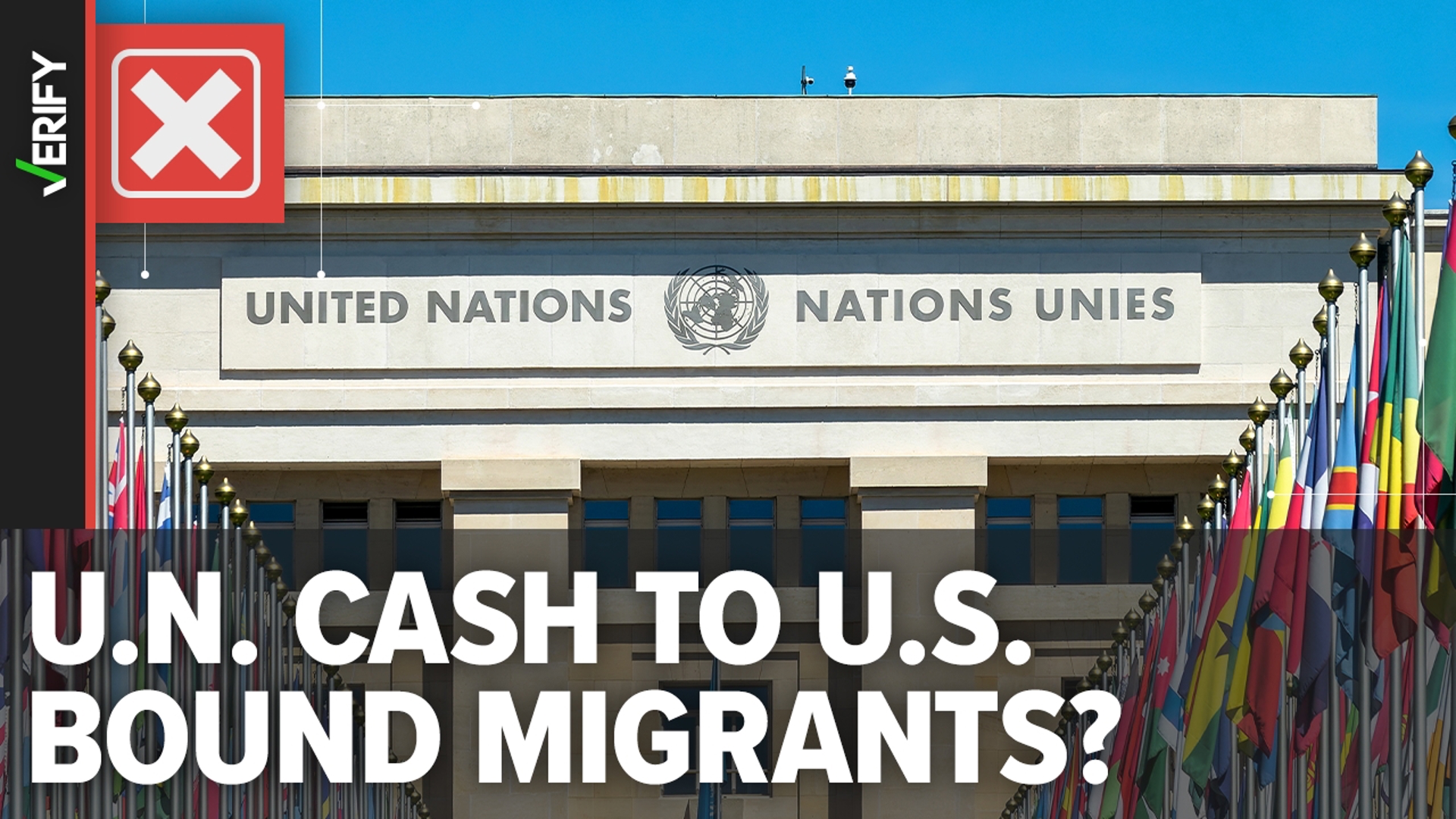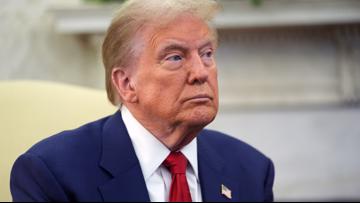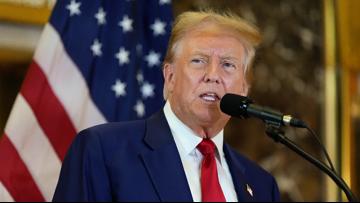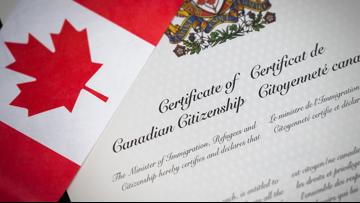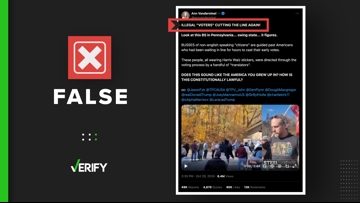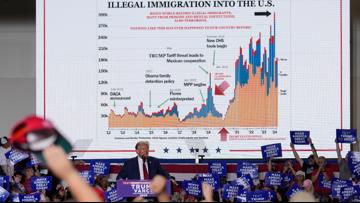Immigration is a hot-button issue in the United States ahead of the 2024 presidential election. The VERIFY team has been getting a lot of questions about how the federal government and humanitarian organizations are helping migrants at the U.S.-Mexico border.
Multiple social posts from the past few years claim the United Nations is giving out millions of dollars in cash to migrants trying to cross the southern border. Some of the posts suggest the U.N. is using U.S. tax dollars to help migrants enter the country.
“The United Nations is Funding Illegals with US Tax Dollars to Come to the United States,” one post reads.
VERIFY reader Danny asked our team if the U.N. really gives cash to migrants entering the U.S. from Mexico.
THE QUESTION
Does the United Nations give cash to migrants entering the U.S. from Mexico?
THE SOURCES
- United Nations
- U.N. High Commissioner for Refugees (UNHCR), the U.N. Refugee Agency
- International Organization for Migration (IOM)
- Bureau of Population, Refugees and Migration (PRM), the humanitarian bureau of the U.S. Department of State
- Congressional Research Service
- Council on Foreign Relations
THE ANSWER
No, the United Nations does not give cash to migrants entering the U.S. from Mexico.
WHAT WE FOUND
The U.N.’s migration and refugee agencies do not give cash to migrants entering the U.S. from Mexico.
Instead, the U.N.’s International Organization for Migration (IOM) and the U.N. High Commissioner for Refugees (UNHCR) provide or have provided temporary monetary assistance to vulnerable migrants and asylum seekers who stayed in Mexico — not those attempting to enter the U.S. from Mexico.
“IOM has never handed out cash to migrants, either at the U.S.-Mexico border or in other parts of Mexico,” IOM Mexico sources told VERIFY.
IOM Mexico said it provided temporary monetary assistance to vulnerable migrant populations in Mexico through its voucher assistance program until the end of February 2024. The program helped migrants who fit specific criteria, such as elderly people, individuals with serious medical conditions and single women with children.
The assistance was provided for up to three months through personalized, secure plastic cards called electronic wallets (e-wallets), according to IOM Mexico. The e-wallets, which resembled debit cards, could only be used in stores in Mexico for certain purchases, including food, medicine, clothing or other essential items. The recipients had to stay in Mexico during the period of assistance.
IOM Mexico said that cash withdrawals were not allowed in stores or at automated teller machines (ATMs). The organization also tracked the recipient’s purchases to ensure adequate use of the support in Mexico.
“Monthly support provided through the e-wallet ranged from the equivalent of $137 for a single person to $549 for a family of four persons or more,” IOM Mexico sources said. “During 2023, 1,573 people were assisted.”
The UNHCR also says it does not provide any individual cash assistance to migrants who intend to enter the U.S. at the southern border. It does provide debit cards that only work in Mexico for a small percentage of particularly vulnerable people who choose to stay and seek asylum in the country.
“In Mexico, such assistance is available to refugees and people seeking asylum who have demonstrated that they intend to stay in the country and who are assessed as having special humanitarian needs and vulnerabilities, such as single mothers, gender-based violence survivors, and people with serious medical needs,” a UNHCR spokesperson told VERIFY.
“The monthly amounts are limited to partial coverage of essential needs. This assistance is not provided to people who are on the move, for example, people who are transiting Mexico towards another country,” the UNHCR spokesperson explained. Out of all the people who seek asylum in Mexico, less than 10 percent receive monetary assistance from UNHCR.
VERIFY also reached out to the U.S. Department of State’s Bureau of Population, Refugees and Migration (PRM) about the claims that the U.N. is using U.S. tax dollars to help migrants enter the country via the U.S.-Mexico border.
The State Department’s PRM helps fund the U.N.’s IOM and UNHCR’s short-term monetary assistance programs in Mexico.
“This [assistance] helps vulnerable asylum seekers with pending asylum claims in Mexico to support themselves and their families while they await a decision from Mexico’s refugee agency on their case, enabling them to safely stay where they are and not fall prey to smuggling organizations,” a State Department spokesperson said.
“It also helps vulnerable refugees who have been granted asylum in Mexico to integrate into their host community in Mexico and rebuild their lives there,” the State Department spokesperson added.
The monetary assistance from PRM can only be used in Mexico, and it is immediately terminated if it’s used outside of the specific Mexican state where the asylum-seeker is registered, according to the State Department. Meaning it cannot be used by migrants attempting to enter the U.S. from Mexico or in the U.S. itself.
The U.S. is the single largest financial contributor to the entire U.N. system, according to the Congressional Research Service and the Council on Foreign Relations. Mandatory contributions from the U.S. and the other 192 member countries help fund the U.N.’s regular budget and its peacekeeping operations.
In a February report, the Council on Foreign Relations wrote that the U.S. had contributed more than $18 billion to the U.N. in 2022, the most recent fiscal year with data available. The UNHCR received $2.2 billion of that $18 billion, while the IOM received $970 million.
This story is also available in Spanish / Lee este artículo también en español: No, las Naciones Unidas no entregan dinero a inmigrantes que entran a los EE.UU. desde México
